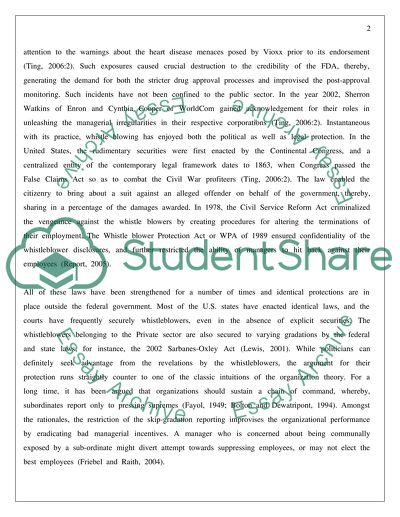Cite this document
(“Whistle-Blowing. Interest in Public Administration, Policy and Ethical Essay”, n.d.)
Whistle-Blowing. Interest in Public Administration, Policy and Ethical Essay. Retrieved from https://studentshare.org/miscellaneous/1508408-whistleblowing
Whistle-Blowing. Interest in Public Administration, Policy and Ethical Essay. Retrieved from https://studentshare.org/miscellaneous/1508408-whistleblowing
(Whistle-Blowing. Interest in Public Administration, Policy and Ethical Essay)
Whistle-Blowing. Interest in Public Administration, Policy and Ethical Essay. https://studentshare.org/miscellaneous/1508408-whistleblowing.
Whistle-Blowing. Interest in Public Administration, Policy and Ethical Essay. https://studentshare.org/miscellaneous/1508408-whistleblowing.
“Whistle-Blowing. Interest in Public Administration, Policy and Ethical Essay”, n.d. https://studentshare.org/miscellaneous/1508408-whistleblowing.


